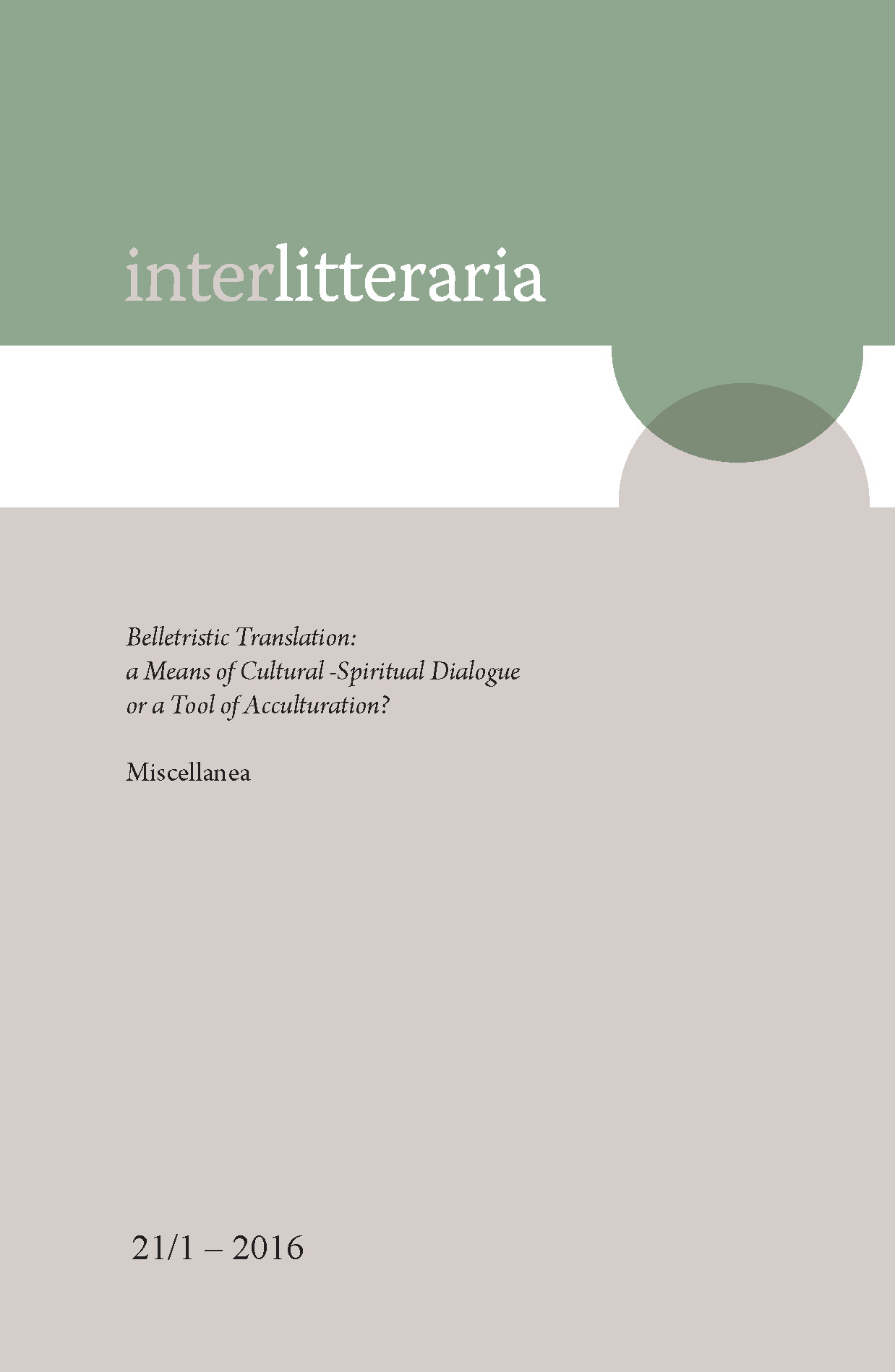Intended Fallacies: Lowered Horizons, Ideological Inversions and Employed Intimacy. Translating Judita Vaičiūnaitė’s Early Poetry into Russian
DOI:
https://doi.org/10.12697/IL.2016.21.1.6Keywords:
Soviet Lithuanian poetry, poetry translation, ideology, Judita VaičiūnaitėAbstract
The case of the translations of Lithuanian poetess Judita Vaičiūnaitė (1937–2001) early poetry into Russian clearly illustrates the damages an original literary text (and the author’s institution) bore seeking to gain a statewide readership. In this article the Soviet translational practice of the 1960s is discussed as a phenomenon typical of Soviet literature when intentional rewriting, expurgation and ideological remakes of the authorial text were considered to be normal.
The lowered horizons when translating the minor nationality’s original poetry, notable ideological inversions and the use of the source text in the most general scheme of the plot in Vaičiūnaitė’s early poetry translations into Russian, and even intimacy used in favour of ideological records marked not only the weakness and incompetence of amateur translators but also the pressure of the censoring institutions upon the author. The invisible chains of Soviet literary patronage demonstrated that the aesthetic value of the original and its translations for the publishing and propaganda industry of that time were of secondary importance. Wishing to spread their work to the wider circle of the Soviet readers and to strengthen the symbolic power, most often authors used to agree to the substitutions and editorial interventions into the authorial text. The interactions between the propagandist-educational character of the translations of that time and the artistic aims of the translational process in Soviet literary criticism were discussed later, after the revision of the Soviet heritage, evaluating the role of literature as a servant of the Soviet power machine.
The fact that Vaičiūnaitė publicly never mentioned her early poetry translations into Russian reveals her attitude towards the prevalent translational practice: it was negatory as well as instrumental. Having agreed with the imprints of the Soviet literary patronage on the translations of her texts, she took the step gaining personal legitimisation in the state-wide Soviet literary universe.
Downloads
Downloads
Published
Issue
Section
License
The contents of Interlitteraria are published under CC BY-NC-ND licence.


